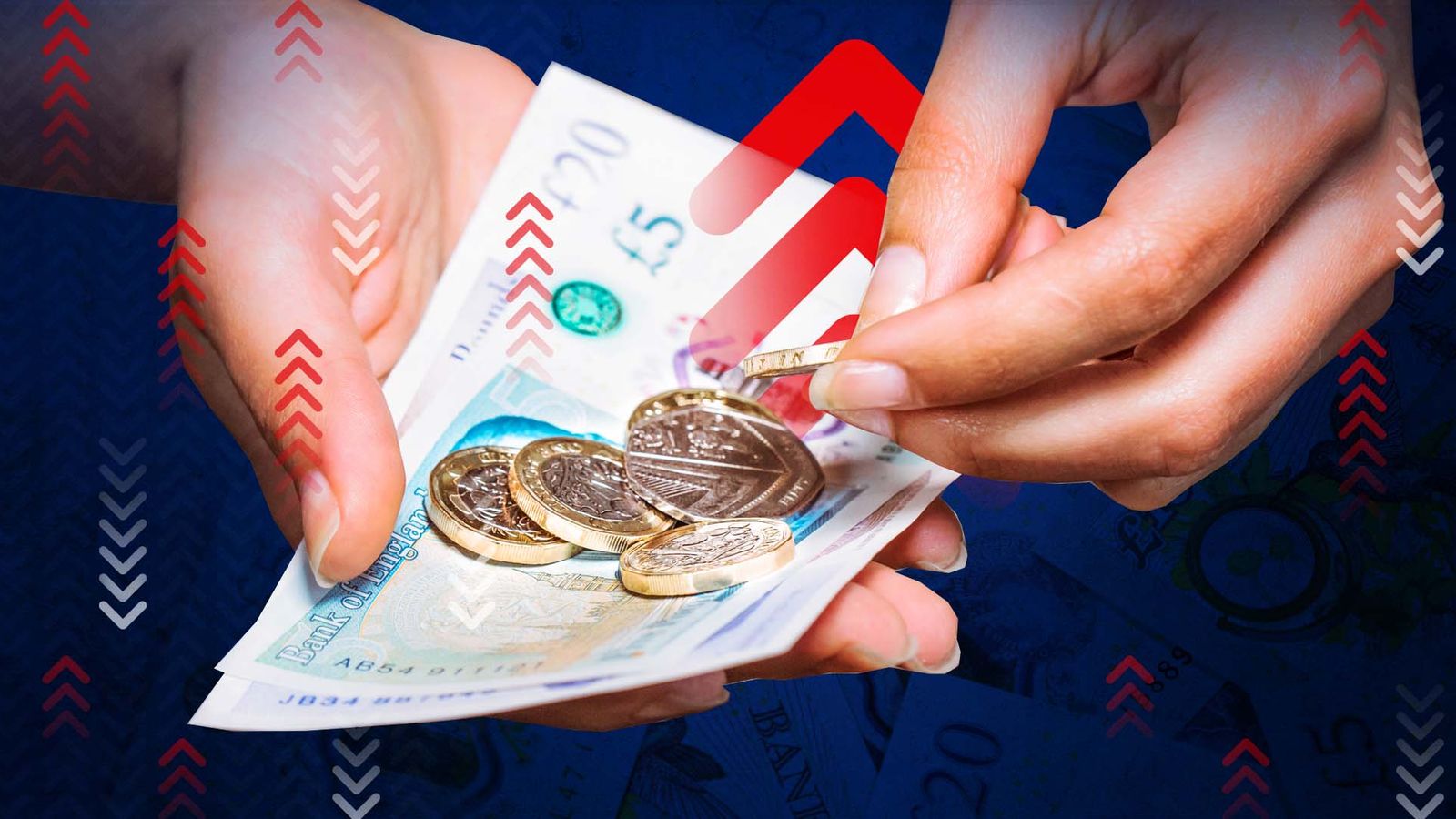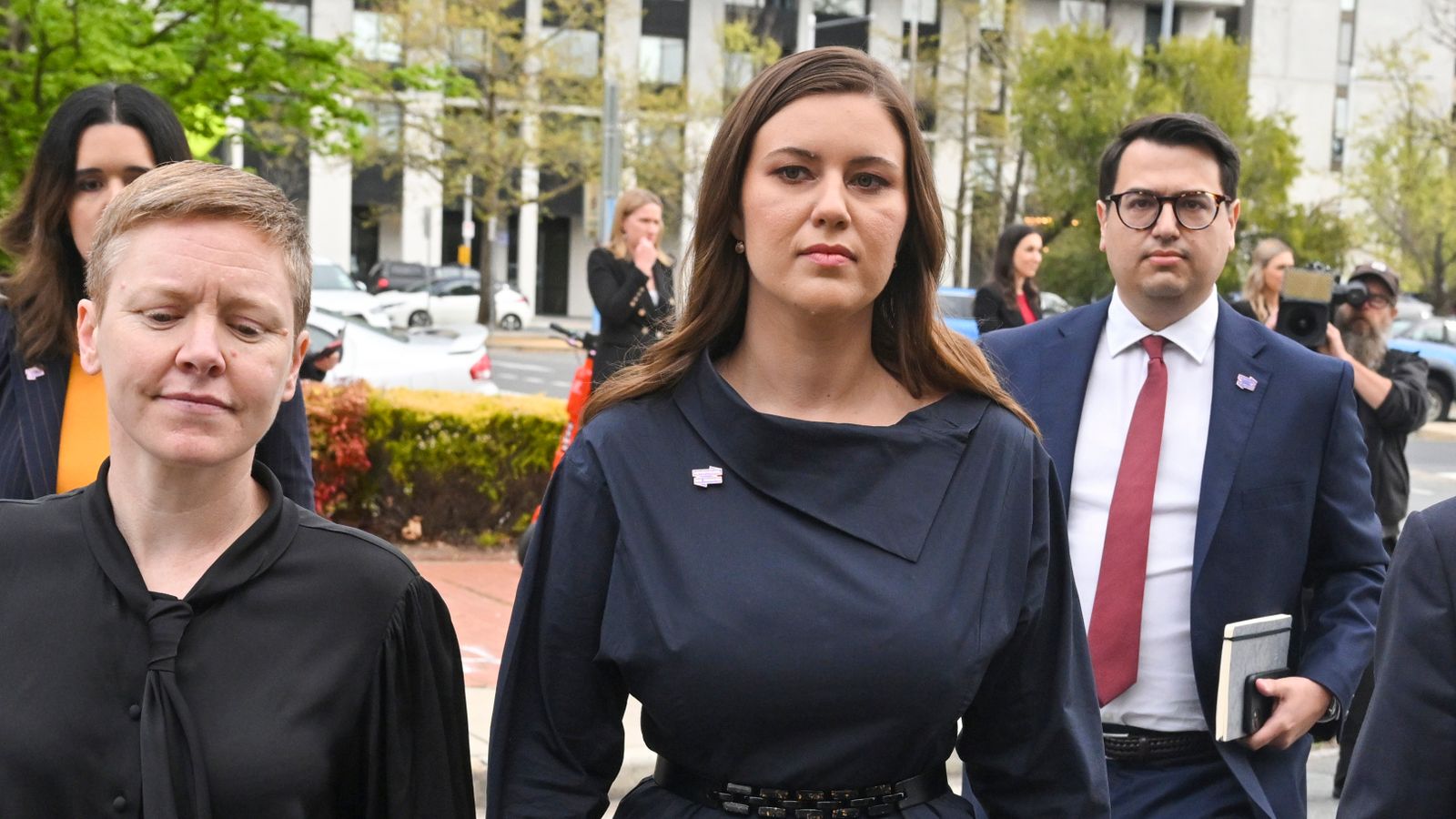After Liz Truss and Kwasi Kwarteng’s mini-budget saw the pound plummet and interest rates rocket, the PM and chancellor are under pressure to announce a cut in public spending.
MPs and financial experts want to see the government make savings to restore market confidence after pension funds were put at risk and people’s mortgages were pulled.
Significant drop in interest rate forecast – Economy news live
One thing being touted as a way to save money is reducing the amount the government spends on benefits.
What is being suggested?
The cost-of-living crisis has led to several sectors demanding pay rises in line with inflation, which peaked at 10.1% in July.
But some in the Conservative Party have argued that if employers are unable to keep wages on a level with rising prices, the government should not have to do the same with benefits.
Reports claim Downing Street is considering increasing Universal Credit in line with average earnings – instead of inflation.
This would save the government £11bn in the first year, going up to £20bn in the second year.
What would it mean for people?
If benefits were linked to average earnings instead of inflation, it would mean benefits being cut by four percentage points in real terms, according to think tank the Resolution Foundation.
It would mean the following losses in income:
Single adult – £391 a year, £32.58 a month
Single parent with one child – £607 a year, £50.58 a month
Working family with two children – £1,061 a year, £88.42 a month
Subscribe to the Daily podcast on Apple Podcasts, Google Podcasts, Spotify, and Spreaker
Ben Howarth, chief executive of social housing group Howarth Housing, told Sky News: “We have food prices rising at the highest rate since the financial crisis.
“It would be a big hit as families are struggling to cope with the cost-of-living crisis.”
Please use Chrome browser for a more accessible video player
What has the government said?
In a series of interviews at the Conservative Party conference on Monday, Liz Truss failed to rule out a squeeze on benefits.
But she stood by her manifesto pledge to retain the “triple lock” on pensions, which means pension payments will go up by 2.5% or with wages – whichever is higher.
Her Justice Secretary Brandon Lewis told Sky News a decision would be made on benefits “in the autumn”, which would mean changes at the start of the new financial year in April.
Read more:
Liz Truss facing fresh battle with senior Tories
Is there any way back from the 45p tax cut U-turn?
Welfare Secretary Chloe Smith said a decision would be made “in due course”.
But after two U-turns in the first month of her premiership, Ms Truss could be facing a third after some Tory MPs, including cabinet minister Penny Mordaunt, told the media they support keeping benefits in line with inflation.
This was something former Chancellor Rishi Sunak committed to in Boris Johnson’s government – so that four million low-income families were saved a real-terms benefit cut.










